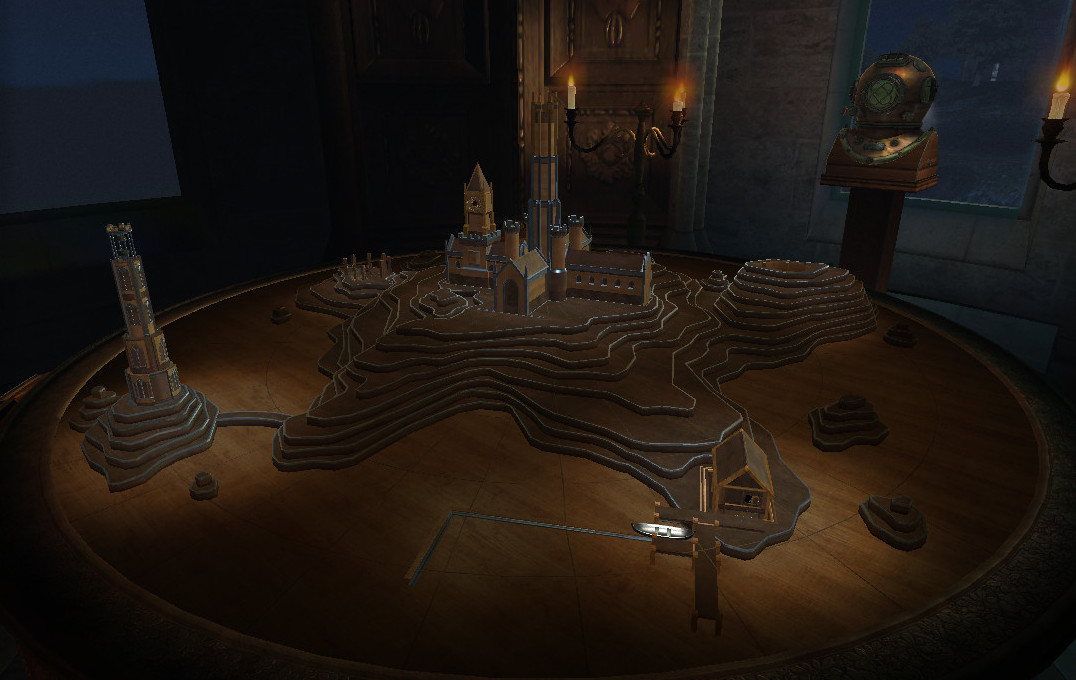I should specify, I’m not advocating for Planescape: Torment levels of writing being crammed into Tetris. While simplistic mechanics like that have been used to prop up more complex titles, they’re hardly puzzle games. A game such as HuniePop, despite relying on puzzle mechanics as it’s core gameplay, is about something very different.
We’re talking about titles designed around their puzzle mechanics, with everything else existing to support them. Games like The Talos Principle, Echo and The Turing Test. All of which you should try if you care at all for that style of game. They’re phenomenal examples of what modern technology can do with some ingenuity.
Compelling Challenge
Ironically enough, puzzle games are far more simplistic to decipher than many modern titles. A game like The Last of Us is constructed from many ambitions and desires, pulled in different directions. It appeals on a mechanical and combat level, a setting and visual level, and a narrative level.
However, with that bold exception aside, the majority of puzzle-centric titles do provide narrative context. Even a series like The Room, a trilogy about opening a box, has a narrative to get you from box to box. The puzzle remains the heart of the gameplay experience but relies on other elements to give it form and keep it moving. It’s how these games have evolved alongside modern technology.
Puzzle Progression
The primary way puzzle games keep their gameplay fresh is by evolving their mechanics and challenge. They can do this either by introducing new elements, like light bridges and turrets in Portal 2, or by evolving existing mechanics, like the growth of enemy AI in Echo.
While these mechanics can be introduced out of nowhere, it’s better to ease players into them. It helps it feel like it’s expanding gameplay rather than drastically altering it. Many games can do this simply through tutorials introducing the concepts, but narrative can do this as well.
The introductory levels of Echo are exceptional, solely based on the visual storytelling of the enemies. Their evolution is terrifying to witness, even in a bright and nonthreatening game. It does nothing besides explain mechanics, but because it tied into the story and the player character, it’s gripping.

However, even in these instances, it’s never something explicitly detailed. Most of Echo’s explanation is done through visuals and implicit details. At the same time, Portal 2’s explanation is performed through incidental dialogue. Neither requires an explicit narrative justification.
Breaking Up the Experience
They may not need narrative as an element of their core gameplay, but puzzle games do depend on it. Narrative exposition and dialogue fill transitions between areas and can break up challenging gameplay. It’s used to keep things moving between puzzles, as well as to differentiate themselves.
Without its character-based comedy, Portal 2 wouldn’t be nearly as beloved as it is. And Echo has a lot of very long very empty corridors that would be painful without its dialogue. It prevents things from growing stale.
For those that struggle, it can also provide an incentive to push through boredom or frustration, when handled properly. The evolution of gameplay is inherent in puzzle games, so there can’t really be any mechanical rewards for completion. The story is the only motivator it has to depend on in that regard.
Narrative/Gameplay Dissonance
However, this purpose of narrative as distinct from gameplay can be a detriment. In a typical title, narrative, and gameplay are connected. You’re running around gunning down hundreds of people because the narrative calls for it. However, in these titles, narrative and gameplay are entirely separate. The narrative only occurs in-between gameplay segments, so as not to impose.
It can completely shatter immersion or investment if you get stuck on anything for a while. Not to mention the impact on the pacing of any story, considering the large gaps of time. It’s quick to become an imposition rather than an enhancement between that and having to repeat it all should you ever fail.
It’s the main reason why the narrative in these games is very rarely explicit. Instead, it’s told in the form of background dialogue or visual storytelling, so it’s not allowed to impede gameplay.
Conclusion
This is evidence enough that the mechanics of these games are far more important than their conveyance of narrative. Good puzzle games are always and can only be first; they need more design than the average title to succeed. Besides this, completing riddles and besting challenges serves as its own reward. The narrative isn’t needed to motivate players or to keep the game in motion.

When done well, it is and always will be a welcome enhancement to a puzzle title. But only an enhancement. Games that are designed primarily for a purpose other than puzzles that employ them are generally only fleshing themselves out. So, perhaps more than any previous genre, it’s a conclusive no.












